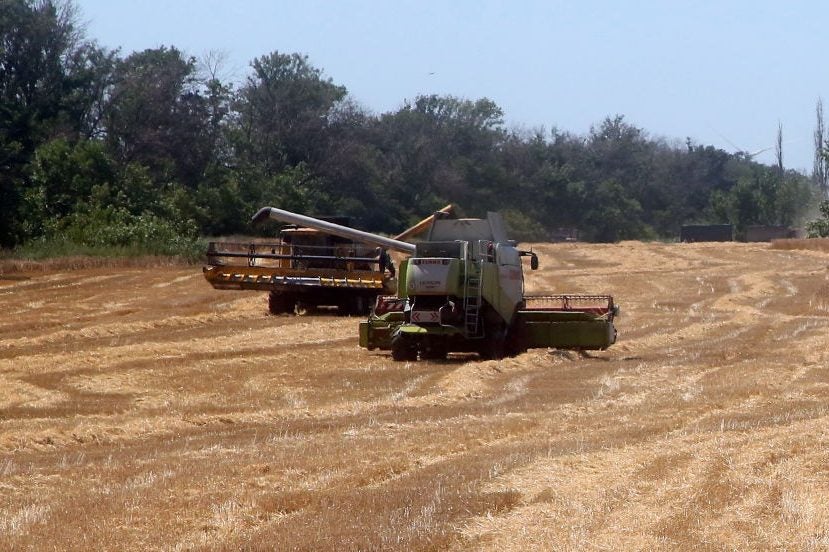
(Photo by Valentin Sprinchak/Tass via Getty Images)
Global food commodity prices continued to decline in June, with cereals hitting a two-year low before the expiration of the current Black Sea Grain deal.
The FAO Food Price Index compiled by the Food and Agriculture Organization of the United Nations dropped 20.9% on a rolling 12-month basis to average 122.3, remaining at the lowest level since April 2021, when the measure reached 122.1.
Tracking prices of five commodities – cereals, vegetable oils, meat, dairy and sugar – the gauge was down 1.4% from May.
It reached an all-time high of 159.7 in March 2022 as Russia’s invasion of Ukraine exacerbated commodity gains sparked by the Covid-19 pandemic and tightness in global supply chains.
The Black Sea Grain Initiative, an agreement first struck with Russia in July last year for a 120-day term, allows for the passage of grains out of three Ukrainian ports. It has since been extended a number of times but no commitment has yet been made by Russia beyond the current expiry on 17 July.
Russia has continually threatened to withdraw from the deal unless obstacles to its own food and fertiliser shipments are removed, barriers which still remain.
Cereals prices, measured by a component gauge of the FAO Food Price Index, dropped 23.8% on an annualised basis to 126.6, the lowest level since July 2021. They were down 2.1% from May.
The FAO noted today (7 July): “International wheat prices dropped by 1.3% as harvests began in the Northern Hemisphere, influenced by ample supplies and a lower export tax in the Russian Federation, along with improved conditions in the US.
“International coarse grain quotations in June decreased by 3.4%, driven mostly by increased maize supplies from ongoing harvests in Argentina and Brazil and improved output prospects in key producing areas of the US.”
Vegetables oils fell 45.3% year-on-year and declined 2.4% on a monthly basis, led by a drop in palm and sunflower oil prices. Soy and rapeseed oil prices rose, however, “influenced by weather conditions in major growing regions”, the FAO said.
Lower international cheese prices spurred a 22.2% annualised decline in the sub-dairy index, which fell 0.8% from May. But world butter prices increased
due to “active demand for spot supplies, mainly from the Middle East”.
The cost of meat on global markets dipped 6.3% over the 12 months but was flat in monthly terms. Poultry prices rose “on the back of high import demand from East Asia amid ongoing supply challenges linked to the widespread avian influenza outbreaks”, the FAO noted.
Sugar halted a four-month run of price increases, falling 3.2% from May, “mainly triggered by good progress of the sugarcane harvest in Brazil and sluggish global import demand, particularly from China”.
However, the component sugar index was up 30% from a year earlier at 152.2. It hit 157.2 in May, the highest level since October 2011.
